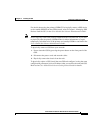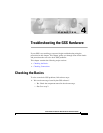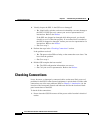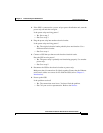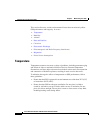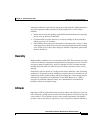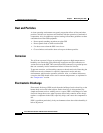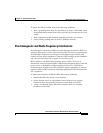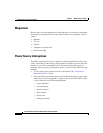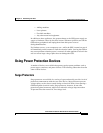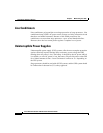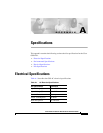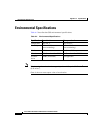
5-3
Cisco Global Site Selector 4491 Hardware Installation Guide
78-16356-01
Chapter 5 Maintaining Your GSS
Maintaining Your Site Environment
Adequate ventilation is particularly important at high altitudes. GSS performance
may not be optimum when operating at high temperatures as well as high
altitudes.
• Ensure that all slots and openings on the GSS remain unobstructed, especially
the fan vent on the back of the GSS.
• Clean the GSS at regular intervals to avoid any buildup of dust and debris,
which can cause it to overheat.
• If the GSS has been exposed to abnormally cold temperatures, allow a 2-hour
warm-up period to bring it up to normal operating temperature before turning
it on. Failure to do so may cause damage to internal components, particularly
the hard disk drive.
Humidity
High-humidity conditions can cause moisture in the GSS. This moisture can cause
corrosion of internal components and degradation of properties such as electrical
resistance, thermal conductivity, physical strength, and size. Extreme moisture
buildup inside the GSS can result in electrical shorts, which can cause serious
damage.
Each GSS is rated to operate at 8 to 80 percent relative humidity, with a humidity
gradation of 10 percent per hour. Buildings in which climate is controlled by air
conditioning in the warmer months and by heat during the colder months usually
maintain an acceptable level of humidity for the GSS. However, if a GSS is
located in an unusually humid location, use a dehumidifier to maintain the
humidity within an acceptable range.
Altitude
Operating a GSS at high altitude (low pressure) reduces the efficiency of forced
and convection cooling and can result in electrical problems related to arcing and
corona effects. This condition can also cause sealed components with internal
pressure, such as electrolytic capacitors, to fail or perform at reduced efficiency.



